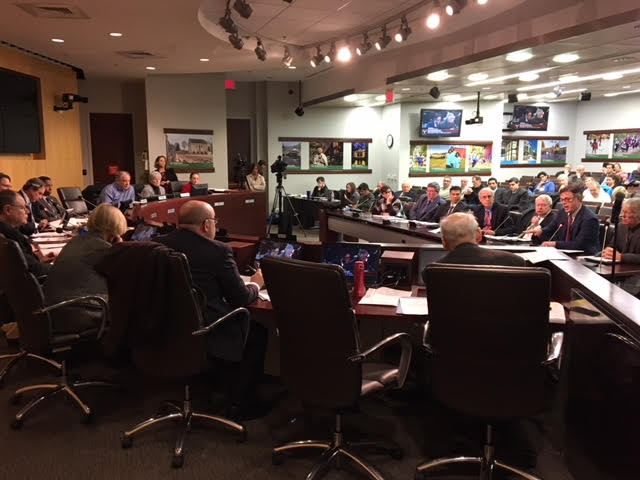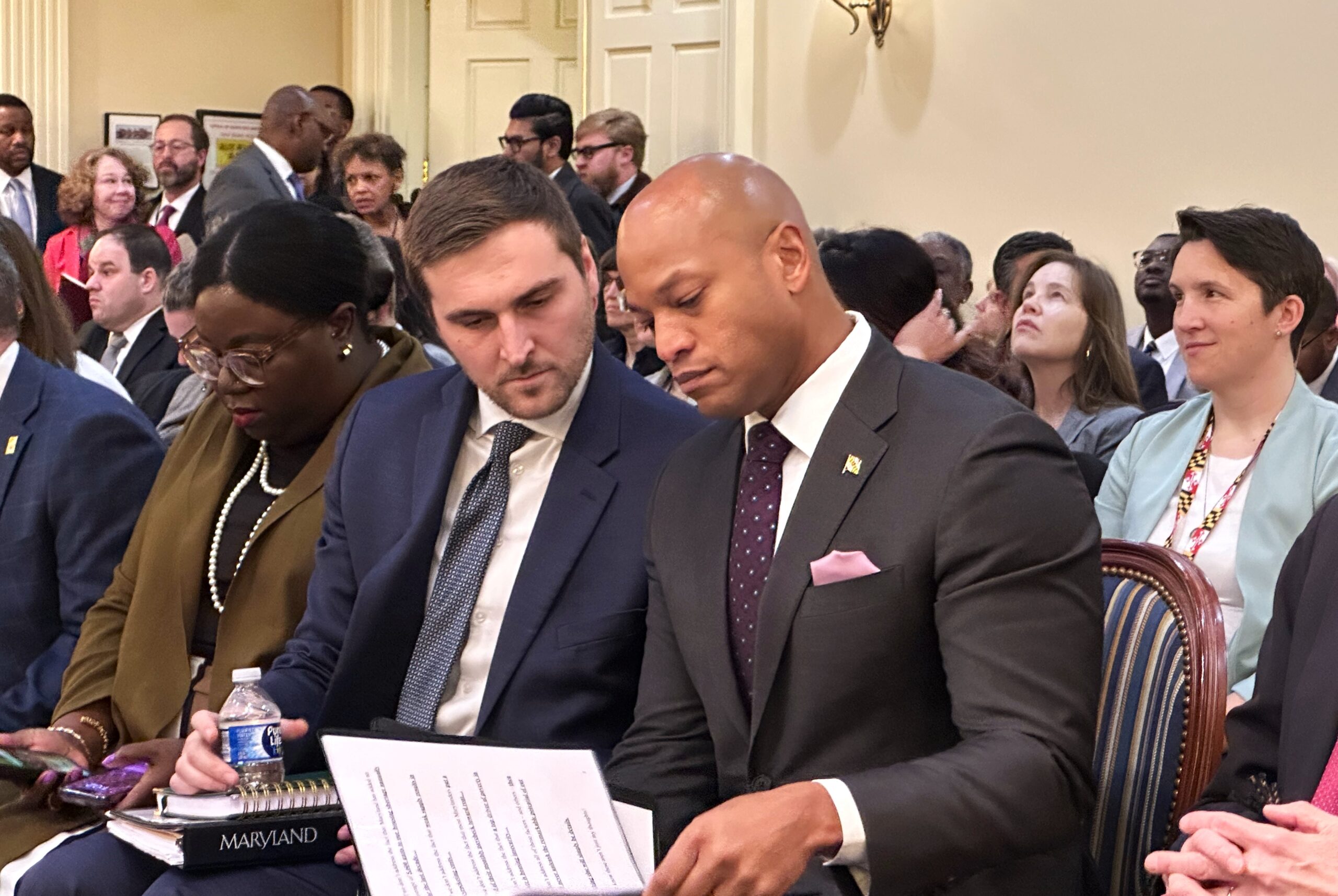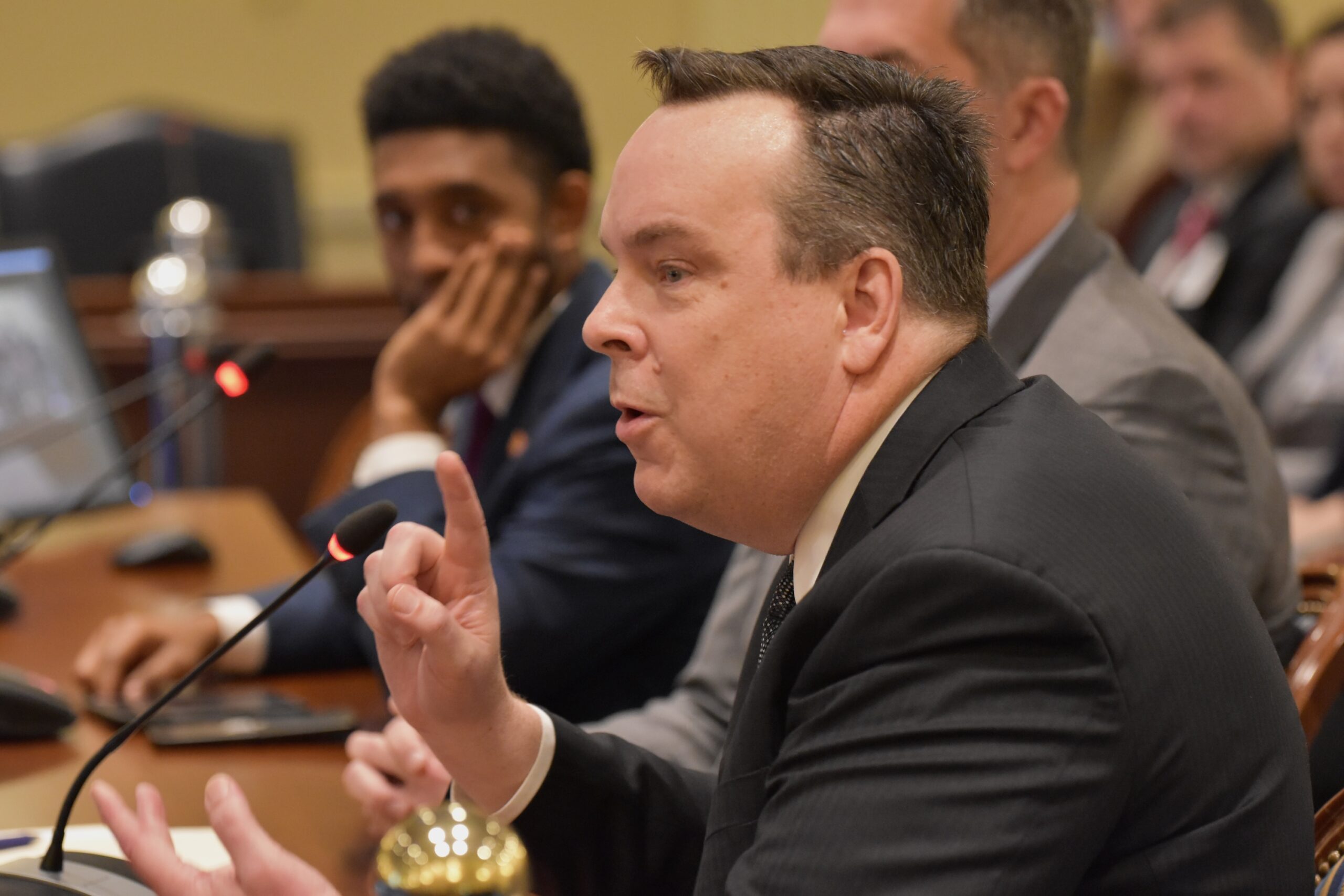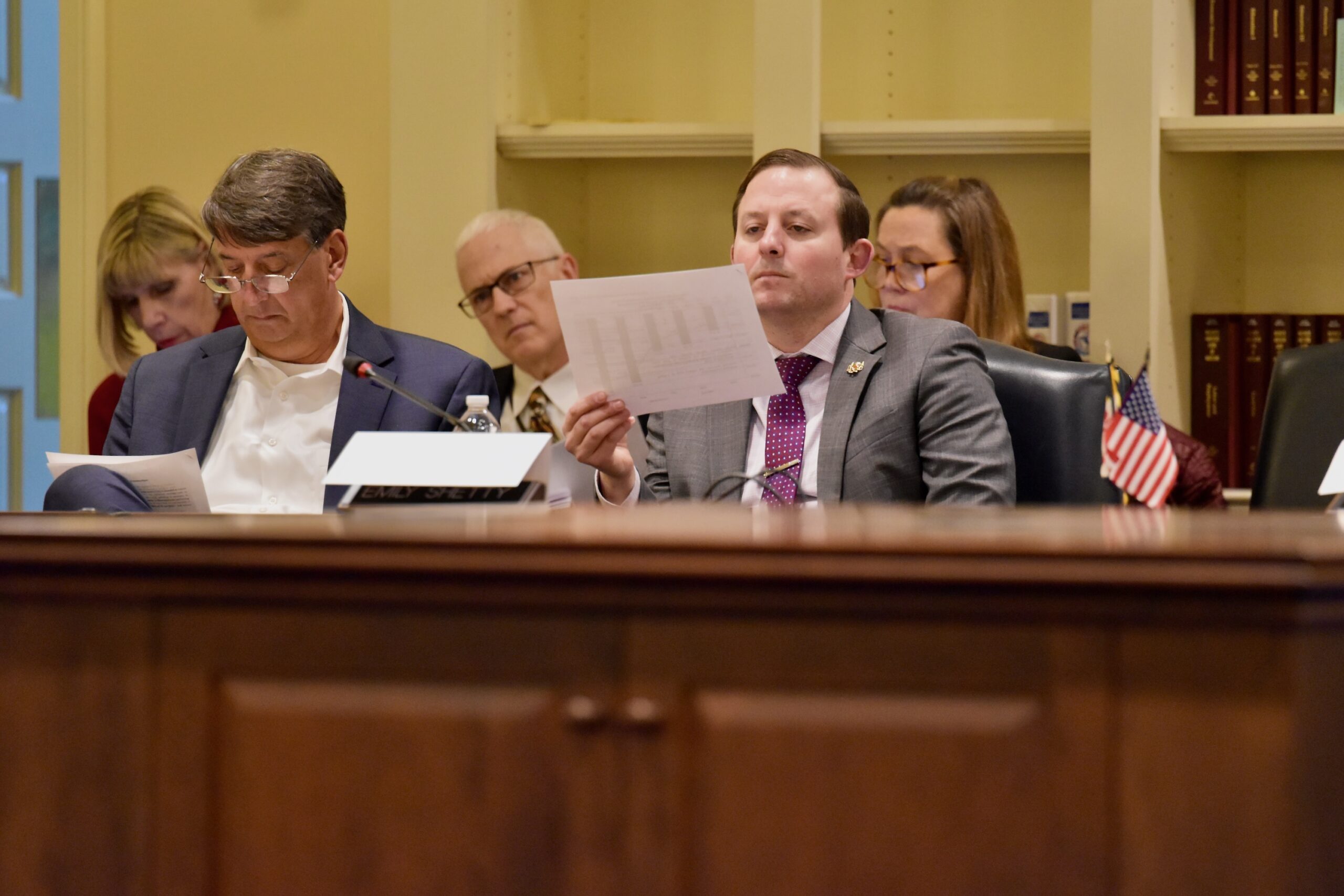Hoping to Beat the Clock, Montgomery Lawmakers Rush Property Tax Measure

The Montgomery County Council hears testimony Tuesday on emergency property tax legislation. Photo by Bruce DePuyt.
Montgomery County homeowners will be allowed to pre-pay their 2018 property taxes in 2017, thanks to a provision approved by the county council on Tuesday. The move is a reaction to the tax overhaul measure signed last week by President Trump, which caps the amount of state and local taxes filers can deduct starting in 2018.
The council was abruptly called into special session by President Hans Riemer (D) after he began hearing from residents concerned that the changes in federal law will boost their tax liability starting next year. Currently, filers can deduct the amount they pay in state and local taxes from their federal returns; the new measure imposes a $10,000 cap, which Riemer said amounted to a “shredding” of a long-standing “bargain” between the federal government and localities.
“This is a direct attack on blue states,” he said.
The measure was approved 7-1, with one lawmaker absent because he couldn’t get back to Rockville in time for the session. County Executive Isiah Leggett (D) signed the legislation into law later in the day.
It is not clear whether other Maryland jurisdictions will attempt to enact similar emergency legislation in the next few days. Barbara Zektick, associate director of the Maryland Association of Counties, said in an email Tuesday she was unaware of other counties teeing up legislation to address the changes in federal tax law.
At a brief public hearing held before the Montgomery Council vote, Bethesda attorney David Scull, a former councilman, told the panel that Maryland leads the nation in the percentage of tax filers who itemize, and that Montgomery — a large, high-income jurisdiction — was likely home to more itemizers than any other county in the state.
“We might be ground zero in America for people who need this relief,” Scull said.
The changes in tax law, approved by Congress and signed by Trump just before Christmas, has accountants scrambling to understand the impact of all the changes in the 1,100-page document — and county finance officials are now under the gun as well.
“Our tax system today cannot handle prepayment of taxes,” Mike Coveyou, a top official in the Montgomery County Department of Finance. “It’s going to be a manual process. People will — hopefully — mail in their payments, and we will open the mail and process them. (Taxpayers) won’t see (their payments reflected) online any time soon.”
Members of the Council and officials from the county executive’s office had the following advice for homeowners who wish to prepay 2018 property taxes before the end of 2017:
— Include “a notice of intent” to prepay taxes along with their check, which must be postmarked by Dec. 31, or
— Hand deliver their check to the county’s Office of Finance, 255 Rockville Pike, Suite L-15, Rockville, Md. (“Notice of intent” forms can be found online, at www.montgomerycountymd.gov, officials said.)
Councilman Craig Rice (D) was the lone lawmaker to vote against the provision. While sharing his colleagues’ anger at the Republicans in Congress and the White House who supported the tax overhaul measure, Rice lamented that many of his constituents don’t have the financial ability to pre-pay a year’s worth of taxes now. “Let’s be real,” he said. “This is helping a few of you in this room.”
Rice said upper-income Americans were getting twin benefits from the GOP-sponsored changes — lower federal tax rates and the ability to pre-pay 2018 taxes before the rules changes. “They’ll be signing tax checks in their million-dollar homes,” he said.
Councilman Roger Berliner (D) disagreed, saying that many residents — teachers, people who work for non-profits and others — were likely to benefit from the Council’s actions. “It’s not true that this will only help the super-rich,” he said.
In social media comments directed at members of the Council, some residents accused lawmakers of precipitating a windfall in revenues to improve the county’s fiscal standing. Councilman Marc Elrich (D) said, “It would be imprudent, to say the least, to spend the money this year.” Councilman George Leventhal (D) urged that pre-paid funds be placed in a “lockbox,” drawing snickers from some in the audience.
For Council members and finance staff who hadn’t anticipated dealing with a complicated and far-reaching provision over the holidays, the session had an improvisational quality to it.
“We’re all trying to figure out what happened,” Councilwoman Nancy Navarro (D) said. “As local legislators, we better get used to this. It’s not a comfortable place to be. It’s quite unprecedented.”
Even with the council’s actions, questions remain. “It’s really not clear whether pre-paid taxes would be deductible in 2017… since the [2018] tax hasn’t been assessed and therefore isn’t owed,” said senior legislative attorney Robert Drummer. There are opinions “floating around on the internet going both ways…. So we’re not saying this is deductible. We’re not the IRS.”
County executive candidate and long-time anti-tax advocate Robin Ficker (R) claimed that he was denied the opportunity to speak at the public hearing even though he was the first to sign up. “They didn’t want to hear what I had to say,” he told Maryland Matters. “And they didn’t want me to get any publicity… Now we realize they’re picking and choosing what views they hear, and that’s not right.”
Riemer denied that Ficker was excluded based on his views, but said his comments weren’t relevant to the legislation being discussed.
Zektick, the official at the Maryland Association of Counties, said at least 10 counties currently accept some kind of property tax prepayment. Of those counties, she said, many have seen a spike in pre-filings or inquiries about changes to the tax law.
Zektick said four counties do not have the software to accept prepayments and said many others are skeptical that they can make technical changes quickly enough to accommodate any last-minute changes in property tax filing rules.




 Creative Commons Attribution
Creative Commons Attribution